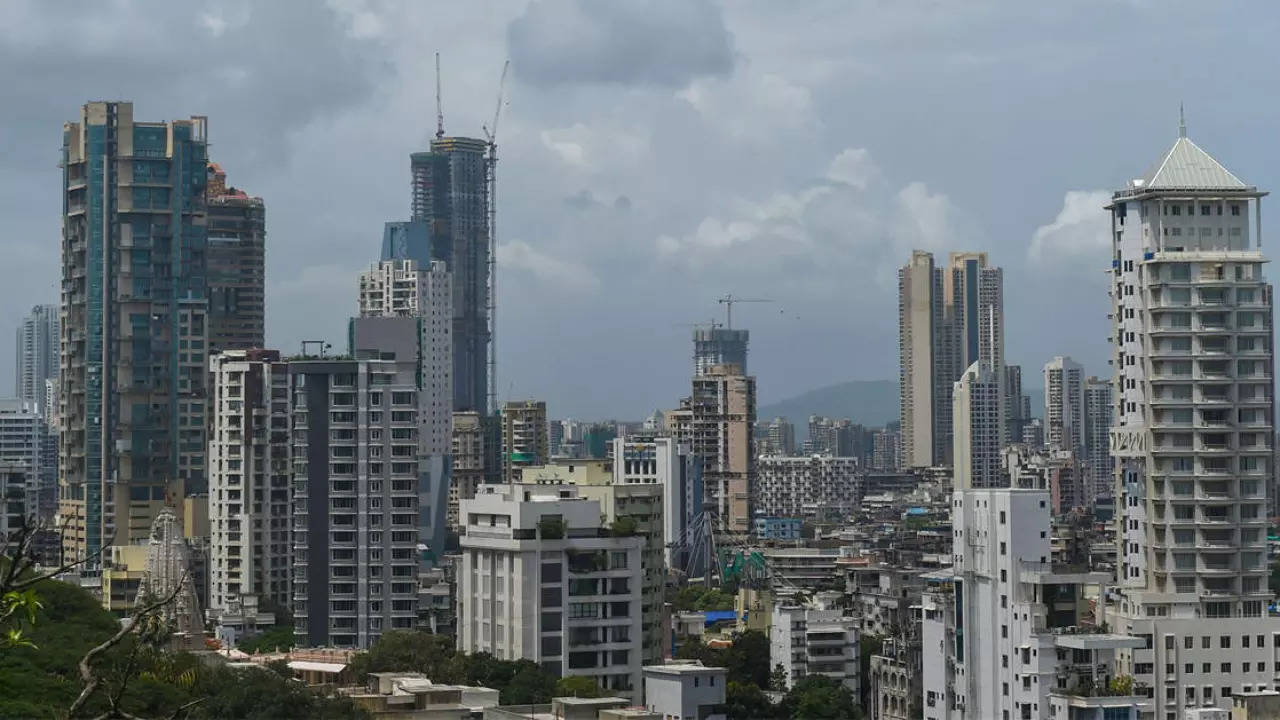Mumbai’s Rental Crisis Puts Professionals Across All Levels Under Pressure
Mumbai, India’s financial capital, is facing a deepening rental crisis that is forcing professionals, from junior to senior levels, to reassess their long-term prospects in the city. A report by CREDAI-MCHI reveals that the skyrocketing cost of housing is making it increasingly difficult for workers to sustain themselves, driving them toward more affordable cities like Bengaluru and Delhi-NCR. This trend could have severe long-term implications for Mumbai’s growth, as businesses struggle to attract and retain talent due to unsustainable living costs.
Junior-Level Employees Struggle to Make Ends Meet
Young professionals starting their careers in Mumbai are among the hardest hit by the housing crisis. With the average annual salary for junior-level employees pegged at ₹4.49 lakh, the cost of renting a 1 BHK apartment—now averaging ₹5.18 lakh per year—is well beyond their financial reach.
In comparison, similar accommodations in Bengaluru and Delhi-NCR are much more affordable, costing around ₹2.32 lakh and ₹2.29 lakh annually, respectively. This mismatch between earnings and rent in Mumbai has led many young professionals to seek opportunities elsewhere. As talented youth migrate to other cities, concerns are mounting about a “brain drain,” with the city’s future workforce shrinking as young talent looks for better financial stability outside Mumbai.
Mid-Level Professionals Also Under Financial Strain
Mid-level professionals are facing similar challenges, with housing costs consuming a significant portion of their income. Earning an average of ₹15.07 lakh per year, many mid-career employees find themselves spending almost half their salary—₹7.5 lakh annually—just to rent a 2 BHK apartment in Mumbai.
By contrast, a 2 BHK in Bengaluru costs ₹3.90 lakh annually, while in Delhi-NCR, the price is even lower at ₹3.55 lakh. This disparity in housing expenses, coupled with similar salary packages across regions, is making it increasingly difficult for mid-level employees to justify staying in Mumbai. Many are now opting to relocate to cities with a lower cost of living, where they can enjoy a better quality of life without sacrificing career growth.
Senior Professionals Relocating to Balance Expenses and Lifestyle

Even senior-level professionals earning substantial salaries are not immune to the city’s high rental burden. With an average annual income of ₹33.95 lakh, senior executives in Mumbai are paying a steep ₹14.05 lakh for a 3 BHK apartment. This amount is more than double the cost of similar accommodations in Bengaluru (₹6.90 lakh) and Delhi-NCR (₹6.30 lakh).
Many senior professionals are choosing to relocate to these cities, where they can enjoy larger homes and a more balanced lifestyle without the financial stress of Mumbai’s exorbitant rents. The relocation of high-level talent is becoming a growing trend, further highlighting the city’s diminishing appeal as a hub for professionals.
Impact on Mumbai’s Competitiveness and Business Growth
The rising cost of living is beginning to take a toll on Mumbai’s competitiveness. Businesses are finding it increasingly difficult to attract and retain talent due to the high housing expenses. Talented professionals, especially those in the early and mid-stages of their careers, are leaving Mumbai in favor of more affordable cities that offer a better work-life balance. This talent drain is putting businesses at risk, as they struggle to fill key roles and maintain productivity.
Real estate developers are also facing challenges, as Mumbai’s high property premiums contribute to the ongoing rise in housing costs. The steep real estate prices discourage both buyers and renters, limiting the city’s ability to meet housing demand. This cycle of high premiums and limited affordability is threatening to stifle growth across industries, raising concerns about the long-term economic stability of the city.
Conclusion: Mumbai Risks Losing Its Edge Without Intervention

Unless rental prices are brought under control, Mumbai is at risk of losing its position as a leading professional and business hub in India. The high cost of housing is driving professionals to cities like Bengaluru and Delhi-NCR, where they can enjoy a better quality of life at a fraction of the cost.
The CREDAI-MCHI report warns that without significant intervention, Mumbai’s rental market will continue to alienate both young and experienced professionals, hindering the city’s growth. To retain its workforce and remain competitive, Mumbai will need to explore policies that address housing affordability, reduce real estate premiums, and attract talent back to the city. If these challenges go unaddressed, the city could face a long-term talent and business drain, threatening its status as India’s financial capital.

